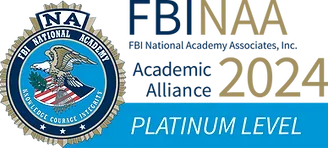PURPOSE
This policy sets out the fraud prevention management of all accounting activities of Global Leadership Institute (GLI) in accordance with legal and professional requirements.
PRINCIPLES
GLI is committed to the following:
· developing and maintaining best practices and processes to detect and prevent fraud;
· adhering to zero tolerance to fraud;
· investigating all reported incidents of alleged fraud and prosecuting as appropriate;
· taking a risk management approach to the prevention, identification and management of fraud;
· investigating all instances of suspected fraudulent or corrupt conduct exposed as a result of detection processes;
· managing, disciplining or facilitating the prosecution of those responsible for incidents of substantive fraud as appropriate.
ROLES AND RESPONSIBILITIES
· Governing Board will regularly monitor and review financial reports of the Institute.
· The President has ultimate responsibility for ensuring that adequate controls are in place to prevent and detect fraud.
· The Registrar has the responsibility for ensuring that appropriate controls are in place at all levels to ensure safeguards against fraudulent activity, and must take action to implement and maintain these controls.
Scope
Whole Institute
Key Stakeholder
All staff and students
Proceedure
These procedures are designed in accordance with Australian Accounting Standards, Statements of accounting Concepts and other authoritative pronouncements of the Australian Accounting Standards Board:
· the President will approve any payment or expenditure above $1000;
· day to day expenses will be approved and paid by the Registrar;
· payment of student fees will be processed by administrative staff located at Reception. All student payments will be done through electronic transfers with zero cash handling at the campus;
· the President will be the sole person who deals with all matters with the bank and has access to the relevant accounts;
· the Registrar has the delegation to make payments below $1000;
· any major refurbishment work, purchase of equipment, and tenders are to be approved by the President:
1. daily expenses such as purchase of stationery, refreshment and related will be managed through the Registrar’s Office;
2. the Registrar will undertake regular reconciliation of all the accounts including income and expenditure. The President of the Institute will also monitor the cash flow on an ongoing basis;
3. on an annual basis the Institute will engage an external accounting firm to undertake an independent audit of its finances;
4. the Institute has strict internal control systems to detect and prevent fraud. The detailed control processes include:
5. system of checks and balances to ensure no one person has control over all parts of a financial transaction.
6. purchases, payroll, and disbursements are to be authorised by a designated person.
Separate handling (receipt and deposit) functions from record keeping functions (recording transactions and reconciling accounts) are implemented.
· Separate purchasing functions from payables functions occur.
· No one same person is authorised to write and sign a check.
· Periodic reconciliation of the incoming check log against deposits will occur.
· Supervisors must approve employees’ time sheets before payroll is prepared.
If an electronic transfer option has not been chosen, pay checks will be distributed by a person other than the one authorising or recording payroll transactions or preparing payroll cheques.
The Institute’s bank accounts will be reconciled monthly by an independent person.
Cancelled cheques will be checked to ensure vendors are recognised, expenditures are related to institute business, signatures are by authorised signers, and endorsements are appropriate.
Bank statements and cancelled cheques are checked to make sure they are not issued out of sequence.
All statements are initialled, dated and reconciled.
Institute credit card usage will be restricted and charges made must be business-related.
Governing Board has oversight of the Institute’s operations and management. Through its Budget and Finance Committee it will:
· receive reports about the Institute’s financial activity on a regular basis, comparing actual to budgeted revenues and expenses;
· receive an explanation of any significant variations from budgeted amounts;
· periodically review the check register or general ledger to determine whether payroll taxes are paid promptly;
· document approval of financial procedures and policies and major expenditures;
· invite independent auditors to present and explain annual financial statements and provide management letters;
· participate in the hiring/approval to hire of consultants including the independent auditors.
The President will ensure a communication strategy is in place to ensure operational procedures for the following are understood by relevant staff:
· cash disbursements;
· attendance and leave;
· expense and travel reimbursements;
· use of agency assets;
· purchasing guidelines;
· petty cash;
· conflicts of interest.
The Institute’s assets such as vehicles, computers, equipment, and other resources are to be used only for official business.
Expense reports, credit card charges, and telephone bills will be periodically examined to determine charges are appropriate and related to GLI business.
Vehicle logs are to be kept, listing the dates, times, mileage or odometer readings, purpose of trip, and name of the employee using the vehicle. These logs will be periodically reviewed.
Regular equipment inventories will be conducted by the Campus Manager.
Access to petty cash funds will be restricted. Receipts for all petty cash disbursements with the date, amount received, purpose or use for the funds, and name of the employee receiving the funds listed on the receipt must be received.
All cheques and cash received will be protected against fraudulent use by:
· prohibiting writing cheques payable to cash;
· defacing and retaining voided cheques;
· storing blank cheques in a locked drawer or cabinet, and limiting access to the cheques;
· requiring that cheques are to be signed only when all required information is entered on them and the documents to support them (invoices, approval) are attached;
· requiring two signatures on cheques above a specified limit;
· marking invoices “Paid” with the cheque number when cheques are issued;
· enabling hidden flags or audit trails on accounting software;
· ensuring that all cash and cheques received are promptly recorded and deposited in the form originally received;
· issuing receipts for cash, using a pre-numbered receipt book;
· conducting unannounced cash counts;
· reconciling cash receipts daily with appropriate documentation (cash reports, receipt books, mail tabulations, etc.);
· centralising cash receipts whenever possible.
To avoid or discourage related party transactions, GLI requires:
· an annual update of conflict of interest processes;
· related party transactions be disclosed and approved by Governing Board;
· competitive bidding for major purchases and contracts;
· active discouragement of the hiring of relatives and the conduct of business transactions with Institute members and employees.





